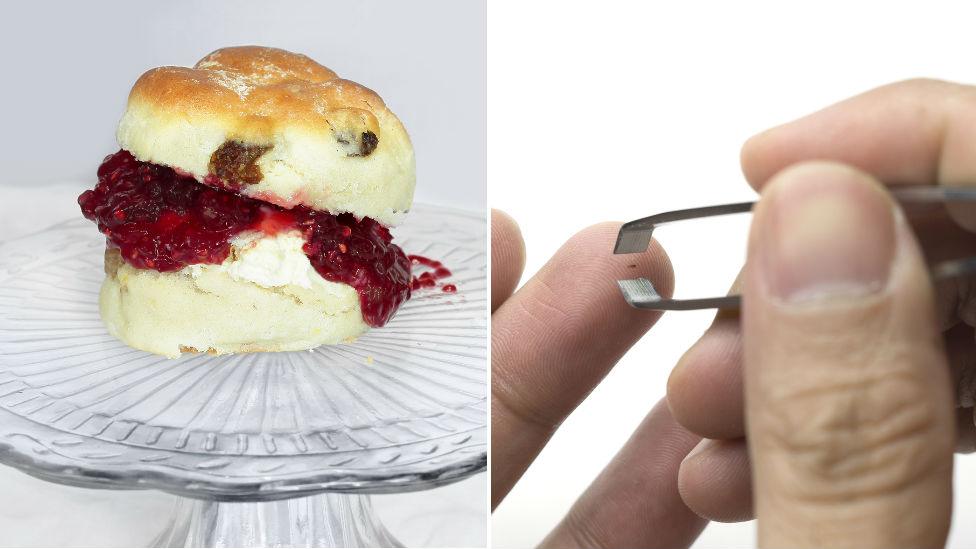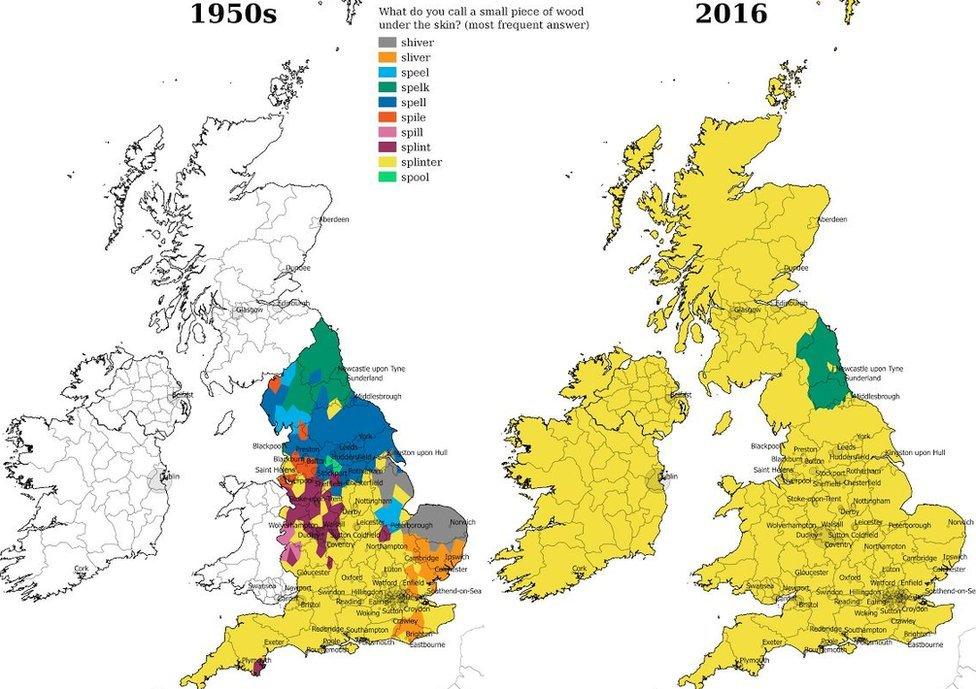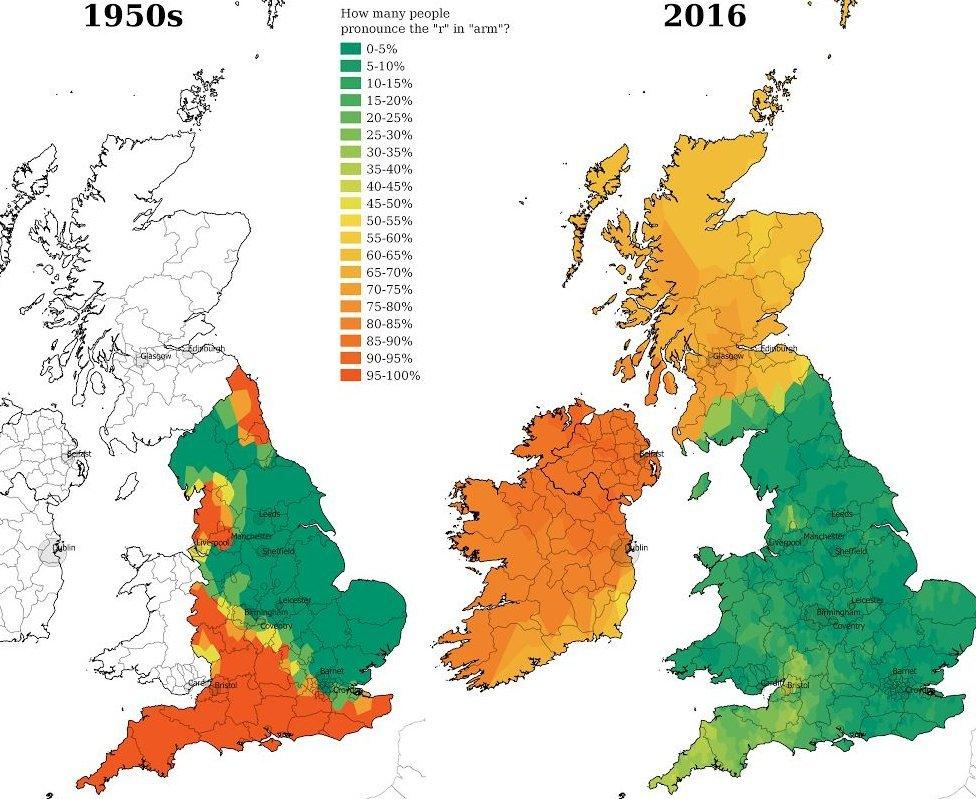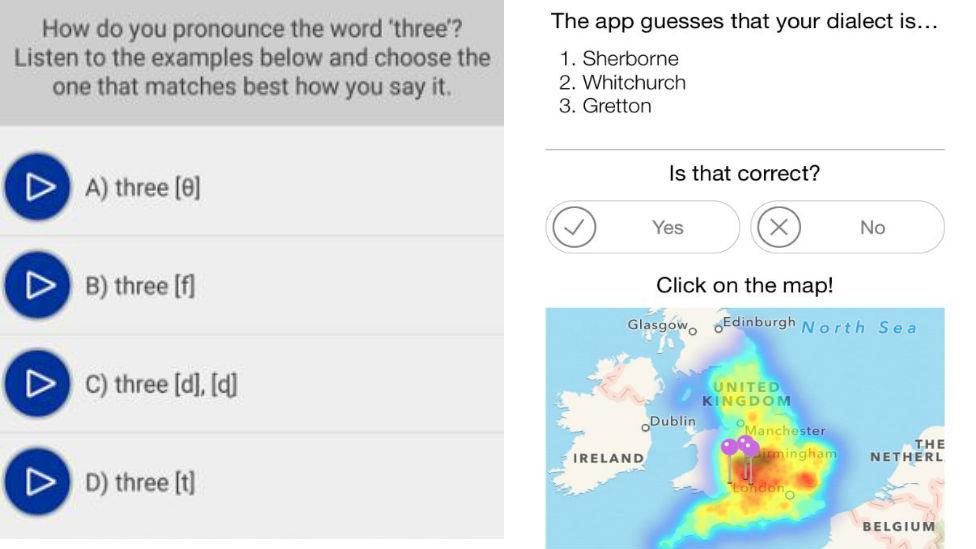'Southern' accents replacing dialects, language app finds
- Published

Pronunciation of words such as "scone" and how you refer to a splinter were used to map accent and dialect changes
Distinctive regional accents appear to have declined since the 1950s with more people now sounding like "southerners", researchers have concluded.
Results from 30,000 users of the English Dialects app have been analysed by developers at Cambridge University.
People from 4,000 locations answered questions about the pronunciation of words such as "scone".
Initial results showed more people now speak with accents similar to those in London and the south-east of England.
They were compared with dialects studied more than 50 years ago by researchers at the University of Leeds in a decade-long field study of accents, called the Survey of English Dialects, external.

Regional pronunciations were compared with those from a survey in the 1950s
The app, developed with researchers in Zurich and Bern, asked questions about the pronunciation of 26 words and how they described certain nouns, such as a splinter.
During the 1950s there were about 10 commonly-used words to describe a tiny piece of wood that gets stuck under the skin, including "spell" and "sliver".
But according to app users, many appear to have died out, with only those in north-east England sticking to their own version - "spelk".
Other examples looked at how people pronounce the "u" in "butter" and the "r" in "arm".
Results showed there had been a "noticeable" shift since the 1950s towards pronunciations more commonly found in London and the south-east of the country.

Far fewer people now pronounce the "r" in the word "arm" than they did during the 1950s survey of dialects
"When it comes to language change in England, our results confirm that there is a clear pattern of levelling towards the English of the south-east," said Dr Adrian Leemann, a linguistics researcher at Cambridge University.
"More and more people are using and pronouncing words in the way that people from London and the south-east do."
Researchers concluded "regional differences" were disappearing, "some quite quickly", although people in the north-east of England seemed to be "more resistant to the patterns of overall levelling in dialect".
It put the shift in speech patterns down to "greater geographic mobility" in the decades since the 1950s survey.
Further results from the app will continue to be analysed.

The app uses 26 questions, some with recorded answers, to guess which part of the country you are from
- Published11 January 2016
